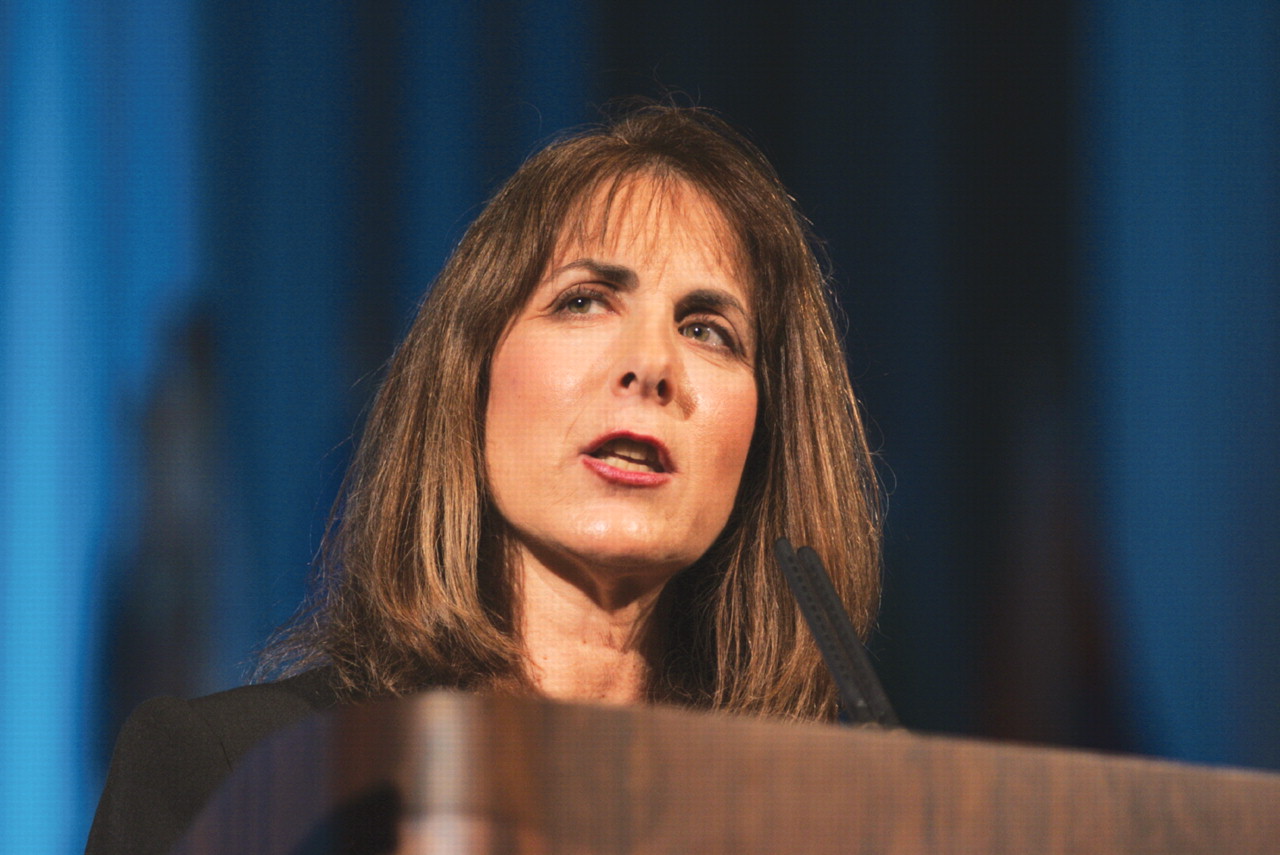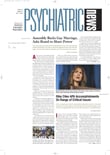It's been a year of progress for APA on multiple fronts, said APA President Michelle Riba, M.D., in her presidential address at the Opening Session of this year's annual meeting in Atlanta.
Riba outlined an agenda under her presidency in which advances were made in five broad areas: mental health on college campuses, education in psychiatry, government relations and advocacy, psychosomatic medicine, and communications.
Psychosomatic medicine is a special interest of Riba's and was the theme of this year's meeting, which offered a wide variety of courses, symposia, and workshops addressing the interface between psychiatry and medicine. In her speech she noted the creation of the new APA Council on Psychosomatic Medicine, chaired by Philip Muskin, M.D. That council will be focusing on clinical care, reimbursement, education of psychiatrists and nonpsychiatrists, and research, Riba said.
With regard to the issue of mental health on college campuses, she noted that the need for campus mental health services is increasing since many students enter college already taking psychiatric medications. Many colleges report seeing increasing rates of severe psychopathology and comorbidity, and suicide is the second leading cause of death among college students, Riba said.
“I gained greater insight into the issues faced by students during our Annual Depression on College Campus Conference at the University of Michigan,” Riba said. “We heard from students from around the country. They talked about their difficulties with a range of psychiatric problems, including eating disorders, alcohol, suicide, and depression.
“The students told us how hard it was to see a qualified mental health professional and to receive continuity of care,” she said.“ The increased pressures of examinations, being away from home, sleep deprivation, loneliness, availability of drugs and alcohol, loss of privacy, large lecture halls, and lack of structure make for obvious problems.”
She cited the establishment of the APA Presidential Task Force on Mental Health on College Campuses, co-chaired by David Fassler, M.D., and Rachel Glick, M.D., which is working on an initiative to increase awareness of the challenges and risks faced during the college years and to provide students with information about where they can turn for assistance.
Riba also drew attention to President Bush's signing of the Garrett Lee Smith Memorial Act, a new federal suicide prevention effort prompted by the September 2003 suicide of Sen. Gordon Smith's 21-year-old son.
Making Progress in Recruitment
In the area of psychiatric education, Riba made note of a special presidential summit convened in April (see
page 12) to develop new undergraduate medical education curricula in psychiatry incorporating the latest advances in psychiatry content and teaching methods. Riba noted the five-year upward trend of students selecting psychiatry for their residency.
“We are also making progress in training patient-oriented psychiatrist investigators in adult and child psychiatry,” Riba said. She pointed to the creation of the National Psychiatry Training Council, which was convened by Thomas Insel, M.D., director of the National Institute of Mental Health, and on which she has served.
“The council was formed with an explicit mandate from NIMH to develop proposals for implementing recommendations contained in the highly regarded Institute of Medicine report, `Research Training in Psychiatry Residency: Strategies for Reform,'” Riba said. “The recommendations encompass a variety of goals tailored to residency training in our age of evidence-based medicine. These goals range from assuring research literacy at one end of the spectrum to increasing the number of residents who choose careers in patient-oriented psychiatric research.”
In the area of advocacy and government relations, Riba emphasized advances made in research funding, efforts to stop the drive for psychologist-prescribing privileges, and inroads made with regard to the controversy surrounding black-box warnings on antidepressants.
On that last topic, Riba again drew attention to Fassler's leadership. Among the many tasks he undertook was the development of Web-based resources for physicians and parents on the use of antidepressants in youngsters in collaboration with colleagues and allied organizations.
Healthy Minds Make Healthy Lives
Finally, Riba emphasized APA's new outreach and communication effort,“ Healthy Minds, Healthy Lives,” which focuses on what she called a“ message of hope and determination” (Psychiatric News, May 6).
“This new public information campaign is designed to achieve this goal,” she said. “At the same time, it puts a fresh, new face on patient care, APA, and our profession. It addresses stigma associated with mental illness, and it highlights the importance of seeking treatment from psychiatric physicians.
“This awareness campaign is a step forward in strengthening APA as the leading voice on mental health,” she said. “And it's a step forward in promoting our members as the leading providers of psychiatric care.”
Riba also drew special attention to the work of Annelle Primm, M.D., director of APA's Department of Minority and National Affairs, who is helping the profession better understand the needs of minority communities. Riba noted that APA is now developing programs to increase the number of minority psychiatrists and to work toward the elimination of mental health disparities in underserved ethnic and racial groups.
“This is your association and your profession,” she said in concluding her speech. “I am grateful to all of you for your confidence in me to lead the American Psychiatric Association. Your support, your ideas, your energy—these are the elements that have made for a spectacular year as your president, and I thank you.” ▪

